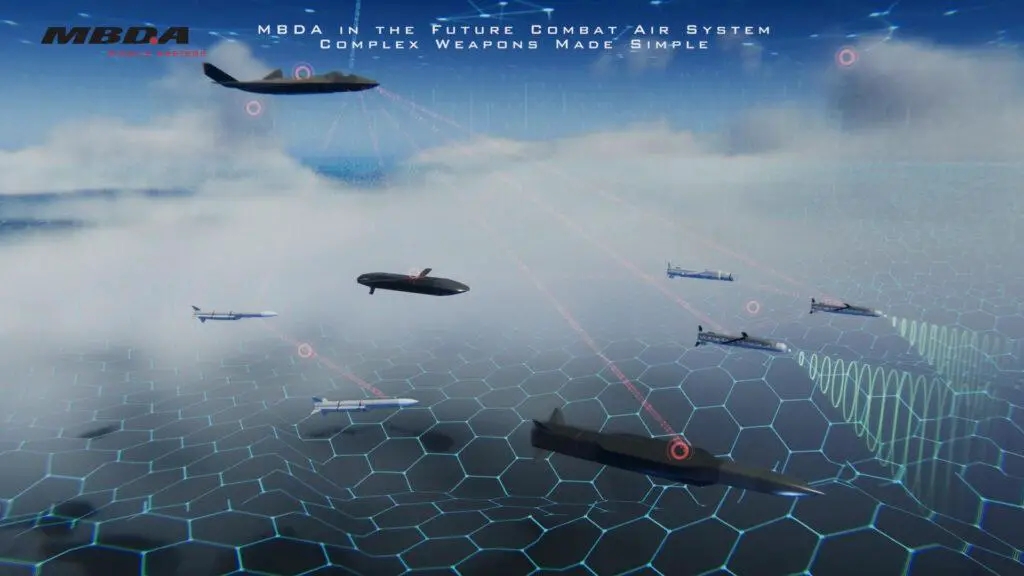At the Farnborough International Airshow 2022, MBDA is presenting, as part of Team Tempest on the Future Combat Air System (FCAS) stand, its vision for optimising weapon effects in the future battlespace through its Weapon Effects Management System. In an ever increasingly complex operating environment, a pilot – or even remote operator – will need the assistance of the Artificial Intelligence (AI) and Machine Learning (ML) of a Weapon Effects Management capability to reduce their cognitive burden and facilitate the coordination of all available complex weapons in a battle space. As part of its involvement in the FCAS programme, MBDA is developing a Weapon Effects Management System. Working closely with our Partners in the programme, the concept intends to deliver software that works in harmony with the core platform’s mission systems and sensor suite, providing the best threat response, deployable at the most opportune moment, therefore maximising the overall mission effectiveness.
Lorenzo Mariani, Managing Director of MBDA Italia and Executive Group Director of Sales and Business Development, said: “MBDA is able to provide customers with the ability to co-operatively manage effects, including all the technologies needed to defeat increasingly challenging future threats. These capabilities will be the basis of best-in-class next generation multi-domain systems. The FCAS programme is a further great opportunity to co-operate internationally and leverage each country’s advanced capabilities to offer the market new cutting edge performances”.
Chris Allam, Managing Director of MBDA UK and Executive Group Director of Engineering, said: “At MBDA, we know that networked weapons, cooperating in packs, or even swarms, will provide an operational advantage in the future battlespace. The Future Combat Air System will also have the information advantage in that same space. Coupling the two, the vision for the Weapon Effects Management System is to enable true effects optimisation, making complex weapons simple.”
It may also be that the best effect does not come from the system’s core platform, but an un-crewed adjunct or UCAV or even from wider in the battlespace such as a ground or naval-based systems, or a combination of them. An additional capability of the system is to exploit sensing and data-linking capabilities on an Effector to contribute into a mission system thus increasing situational awareness This is what MBDA’s weapon effects management capability aims to manage for the pilot, providing them the optimal solution to choose from before they even have to think about it. Working as part of Team Tempest from the outset of the programme is enabling MBDA to concept and assess this weapon effects management system alongside all the other partners in the FCAS programme, in keeping with the objective of designing a system from sensors through to effectors from the outset.
MBDA is a European multinational developer and manufacturer of missiles. It was created in December 2001 after the merger of the main French, British and Italian missile systems companies. They were the missile businesses of Aérospatiale-Matra (merged into EADS, now called Airbus), BAE Systems and Finmeccanica (now Leonardo). “MBDA” is an initialism of the names of said missile businesses: Matra, BAe Dynamics and Alenia. The company’s headquarters are located in Le Plessis-Robinson, France. Despite being a European joint venture, MBDA has maintained national divisions since its creation: MBDA France, MBDA UK and MBDA Italy. They were formed by simply grouping in their respective countries the assets and activities of the various French, British and Italian businesses that had merged to create MBDA. In March 2006, LFK-Lenkflugkorpersysteme GmbH, the German missile subsidiary of EADS, was acquired by MBDA and Spanish assets followed in 2010, leading to the formation of two additional national divisions (MBDA Germany and MBDA Spain).















